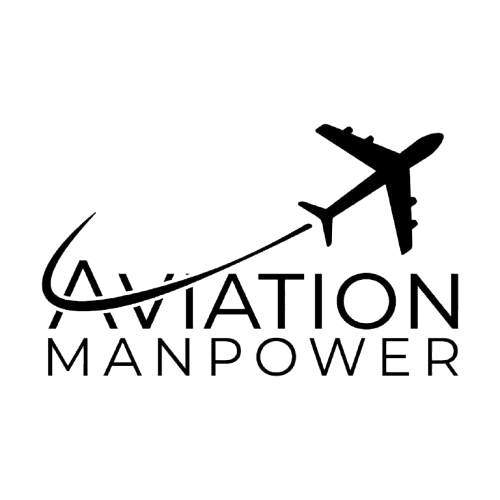Introduction
The aviation industry is known for its fast-paced, high-pressure environment. Whether you’re a pilot, flight attendant, air traffic controller, or aircraft mechanic, the demands of the job can often spill over into your personal life. Irregular schedules, long hours, and time away from home can make it challenging to maintain a healthy work-life balance.
But achieving balance is not impossible. With the right strategies and mindset, you can thrive in your aviation career while still making time for family, friends, and personal well-being.
In this blog, we’ll explore practical tips and insights to help you maintain a work-life balance in the aviation industry. Whether you’re just starting or a seasoned professional, this guide will provide you with the tools to create a fulfilling and balanced life.
Why Work-Life Balance Matters in Aviation
Work-life balance is about finding harmony between your professional responsibilities and personal life. In the aviation industry, where the stakes are high and the hours are unpredictable, achieving this balance is crucial for several reasons:
- Mental and Physical Health
Long hours, jet lag, and high-stress situations can take a toll on your health. A balanced lifestyle helps reduce stress, prevent burnout, and improve overall well-being. - Job Performance
When you’re well-rested and mentally sharp, you’re better equipped to handle the demands of your job. A balanced life enhances focus, decision-making, and productivity. - Personal Relationships
Spending quality time with family and friends strengthens relationships and provides a support system that can help you navigate the challenges of your career. - Long-Term Career Satisfaction
A sustainable work-life balance ensures that you can enjoy a long and fulfilling career without sacrificing your personal life.
Challenges to Work-Life Balance in Aviation
Before diving into solutions, it’s important to understand the unique challenges aviation professionals face:
- Irregular Schedules
Pilots, flight attendants, and air traffic controllers often work nights, weekends, and holidays, making it difficult to maintain a consistent routine. - Time Away from Home
Long-haul flights and layovers can mean spending days or even weeks away from family and friends. - High-Stress Environment
The responsibility of ensuring passenger safety and managing complex systems can be mentally and emotionally draining. - Physical Demands
Jobs like aircraft mechanics and baggage handlers require physical stamina, which can be exhausting over time. - Limited Control Over Schedule
Many aviation professionals have little say in their work schedules, making it hard to plan personal activities.
Strategies for Maintaining Work-Life Balance
Despite these challenges, there are practical steps you can take to achieve a healthier work-life balance. Here are some strategies tailored to the aviation industry:
1. Prioritize Self-Care
- Get Enough Sleep: Fatigue is a major issue in aviation. Prioritize rest, especially before and after long shifts or flights.
- Eat Healthily: Pack nutritious meals and snacks to avoid relying on airport fast food.
- Exercise Regularly: Physical activity reduces stress and boosts energy levels. Even short workouts during layovers can make a difference.
- Practice Mindfulness: Techniques like meditation, deep breathing, or yoga can help you stay grounded and manage stress.
2. Set Boundaries
- Separate Work and Personal Life: When you’re off-duty, focus on personal activities and avoid checking work emails or messages.
- Communicate with Family: Keep your loved ones informed about your schedule so they can support you and plan accordingly.
- Learn to Say No: Don’t overcommit to extra shifts or responsibilities if it compromises your well-being.
3. Make the Most of Your Time Off
- Plan Ahead: Use your days off to reconnect with family, pursue hobbies, or simply relax.
- Stay Local When Possible: If you’re a pilot or flight attendant, consider shorter routes or regional flights to spend more time at home.
- Explore Layover Destinations: Turn layovers into mini-vacations by exploring new cities or relaxing in your hotel.
4. Build a Support System
- Connect with Colleagues: Share experiences and tips with coworkers who understand the unique challenges of the industry.
- Join Professional Organizations: Groups like the Air Line Pilots Association (ALPA) or the Association of Flight Attendants (AFA) offer resources and networking opportunities.
- Lean on Family and Friends: Keep in touch with loved ones through calls, video chats, or messages, even when you’re away.
5. Optimize Your Schedule
- Use Technology: Apps and tools can help you manage your time, track your schedule, and stay organized.
- Plan for Downtime: Block out time for rest and personal activities in your calendar, just like you would for work tasks.
- Take Advantage of Flexible Options: Some airlines offer flexible scheduling or part-time roles for those seeking better work-life balance.
6. Focus on Quality Over Quantity
- Maximize Quality Time: When you’re with family or friends, be fully present. Put away your phone and focus on meaningful interactions.
- Create Traditions: Establish routines or rituals, like family dinners or weekend outings, to make the most of your time together.
7. Seek Professional Help if Needed
- Counseling or Therapy: If you’re struggling with stress, anxiety, or burnout, consider seeking help from a mental health professional.
- Career Coaching: A coach can help you navigate career challenges and find ways to achieve better balance.
Tips for Specific Aviation Roles
Different roles in aviation come with unique challenges. Here are some tailored tips:
Pilots
- Use Layovers Wisely: Rest and recharge during layovers to stay sharp for your next flight.
- Stay Connected: Use technology to stay in touch with family during long trips.
- Advocate for Schedule Preferences: If possible, request routes that align with your personal needs.
Flight Attendants
- Pack Smart: Bring items that make your time away from home more comfortable, like photos, snacks, or a favorite book.
- Stay Active: Use layovers to explore new places or relax in your hotel.
- Build Camaraderie: Form strong bonds with your crew to create a supportive work environment.
Air Traffic Controllers
- Manage Stress: Practice relaxation techniques to cope with the high-pressure nature of the job.
- Take Breaks: Use your breaks to recharge and clear your mind.
- Communicate with Family: Help your loved ones understand the demands of your job so they can support you.
Aircraft Mechanics
- Stay Organized: Keep your workspace and tools organized to reduce stress and save time.
- Prioritize Safety: Follow safety protocols to avoid injuries and ensure a long, healthy career.
- Balance Physical Demands: Incorporate stretching and strength training into your routine to stay fit.
The Role of Employers in Promoting Work-Life Balance
While individual efforts are important, employers also play a key role in supporting work-life balance. Here’s how aviation companies can help:
- Offer Flexible Scheduling
Allow employees to choose shifts or routes that suit their personal needs. - Provide Mental Health Resources
Offer counseling, stress management programs, and wellness initiatives. - Encourage Time Off
Promote the importance of taking vacations and using personal days. - Foster a Supportive Culture
Create an environment where employees feel comfortable discussing their needs and challenges. - Invest in Technology
Use tools and systems that streamline workflows and reduce unnecessary stress.
Conclusion
Maintaining a work-life balance in the aviation industry is no easy feat, but it’s essential for your health, happiness, and career longevity. By prioritizing self-care, setting boundaries, and making the most of your time off, you can create a fulfilling and balanced life.
Remember, balance looks different for everyone. What works for one person may not work for another, so it’s important to find strategies that suit your unique needs and circumstances. Whether you’re a pilot, flight attendant, air traffic controller, or aircraft mechanic, the key is to take small, consistent steps toward a healthier, more balanced lifestyle.
The aviation industry may be demanding, but with the right approach, you can soar both professionally and personally. Take control of your work-life balance today, and enjoy the journey ahead.
FAQs
1. How can pilots manage irregular schedules?
Pilots can manage irregular schedules by prioritizing rest, using layovers to recharge, and staying connected with family through technology.
2. What can flight attendants do to stay balanced?
Flight attendants can pack comfort items, explore layover destinations, and build strong relationships with their crew to create a supportive work environment.
3. How do air traffic controllers cope with stress?
Air traffic controllers can practice relaxation techniques, take regular breaks, and communicate openly with their families about the demands of their jobs.
4. What are some self-care tips for aircraft mechanics?
Aircraft mechanics should prioritize safety, stay organized, and incorporate physical activity into their routines to maintain health and reduce stress.
5. How can employers support work-life balance?
Employers can offer flexible scheduling, provide mental health resources, encourage time off, and foster a supportive workplace culture.

